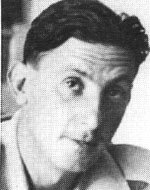Feinberg, Zvi (Grisha)
Son of Ida and Yitzhak. He was born on January 20, 1911, in Kaunas (Kovno), Lithuania. During World War I, his family was deported to Russia with the rest of the Jews from Kovno. In Russia they lived in the city of Rostov on the Don River. The great events that took place there during those years – the revolution and the civil war – had a great influence on his way of thinking and his world view as it developed over time. After his family returned to Kovno in 1921, Zvi studied at the local Hebrew Gymnasium and was a member of the Betar youth movement in 1933. When he arrived in Israel he joined the Irgun Zvai Leumi and joined the “Brit Habiryonim”. He was one of the founders of the Israeli Air Force in 1936. After the outbreak of the bloody riots of 1936 he took part in the ranks of the Irgun, In the defense of the Old City of Jerusalem and the “Hatikva neighborhood” in Tel Aviv. He also assisted in the removal of illegal immigrants on the shores of the country and took part in the foundation of the Aqaba Development Company. Because of his anti-British activities he was arrested several times by the authorities and sat in prisons in Jaffa, Jerusalem, Akko and Zrifin. Abba Ahimeir, who was a member of the Acre prison at the time, later wrote about him: “You do not know the individual as you do in prison, You would not feel it there just as you do not feel healthy organs in your body. ” Outside, Tzvi was loved by his modest friends, and was satisfied with the least. In 1940 Zvi was one of the first conscripts to join the British army and served there for four years. At first he was assigned to the engineering corps of the Austrian army, and later transferred to the Surveyors Unit and received corporal rank. As part of this unit, Zvi worked, among other things, on preparing maps of northern Syria and Syria on the eve of the Allied invasion of Syria and Lebanon in 1941. After the invasion, he also went with his unit through Iraq to Egypt and during the battles in the western desert, he was wounded in the leg. On 20 Kislev, December 6, 1944, he was injured in a train accident near Ismailia, Egypt, and was buried at the military cemetery in Muaskar. He left three sisters.
